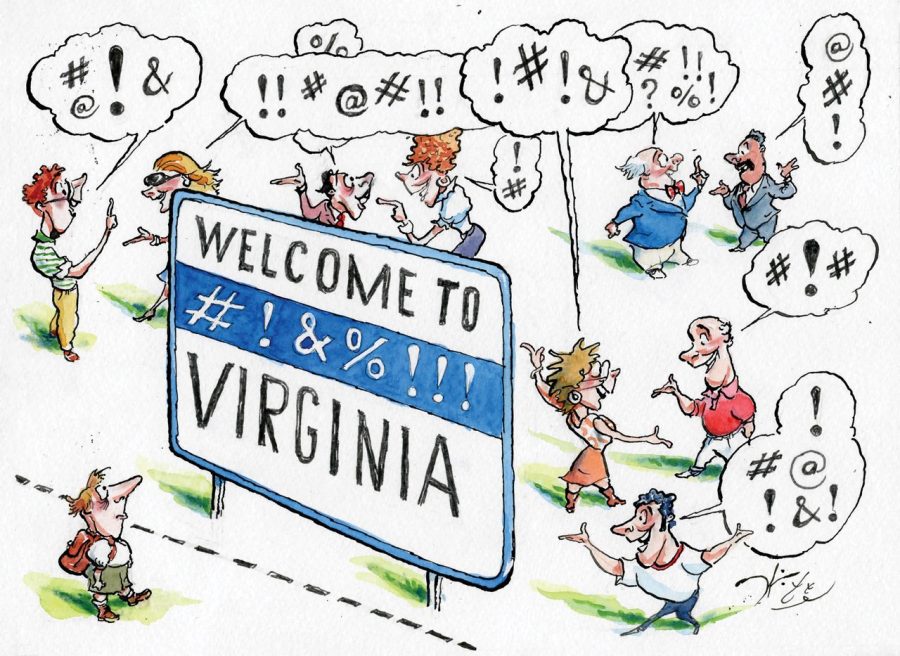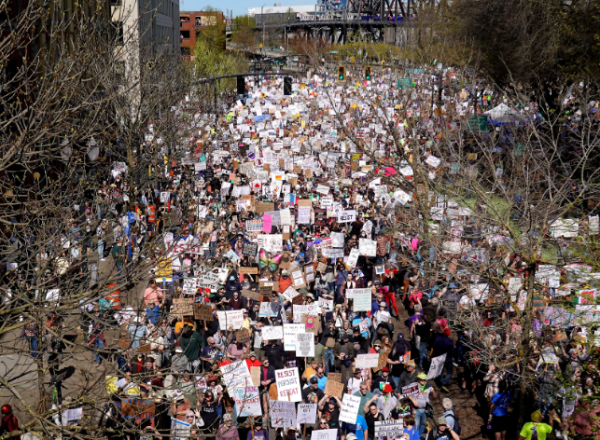Virginia legalizes swearing in public
The law no one knew existed and one you have probably broken is finally being decriminalized: Swearing in public is a crime in Virginia. Mentioned along with public intoxication, it’s found in the Code of Virginia. Both actions are considered a Class 4 misdemeanor. The crime in Virginia code states that “if any person profanely curses or swears or is intoxicated in public, whether such intoxication results from alcohol, narcotic drug or other intoxicant or drug of whatever nature, he shall be deemed guilty of a Class 4 misdemeanor.”
So how was this law established in the first place? The code goes back to 1776 when George Washington declared an “Order Against Profanity” to keep soldiers from participating in “the foolish and wicked practice of profane cursing and swearing.” Adding that it’s “a vice so mean and low without any temptation that every man of sense and character detests and despises it.” The fine at that time was just 83 cents, compared to the current fine of $250. To add to the confusion, in 1971 The United States Supreme Court ruled in Cohen v. California that banning offensive messages was a violation of First Amendment rights, writing that “one man’s vulgarity is another’s lyric,” but somehow Virginia’s law stayed the same.
Virginia state lawmaker and farmer, Michael Webert, says he understands, “When you’re working [with] cows and a 1,400-pound animal doesn’t do what you want it to, or steps on your feet, every once in a while something colorful comes out of your mouth,” Webert said, adding “When I cursed, my mother told me not to and handed me a bar of soap. You shouldn’t get hit with a Class 4 misdemeanor.” Webert has been one of many fighting for legalization of public swearing, since 2016. He questions why the law has “been found to be unconstitutional, and we still haven’t removed it.” He credits the long awaited passing of legalization to the new representation of democrats in both chambers of the house. Webert said, “Every time we brought it, it failed. And this year, we put it in and then [Democratic Del. Dawn Adams] put it in as well… It was a good match.”
There haven’t been many cases where people were fined in recent years, as it is a difficult law to enforce. Many police officers say they won’t charge for swearing alone, but will count it as an extra charge if there is an offense. According to the Washington Post, only three people have been charged in the past two years in Northern Virginia. To put into perspective, the population of Northern Virginia is 3.149 million. However, other parts of the state are more proactive against swearing. For example, at Virginia Beach, there are “no swearing” signs on the boardwalk, and mini replicas are sold in the gift shops. The signs were put up by the Visitor’s Bureau to “encourage courteous language” in a family-friendly area.
Virginia isn’t the only state where it’s illegal to swear in public. In Mississippi, a person can face up to 30 days in prison for using “vulgar and indecent language… in the presence of two (2) or more persons,” and in Georgia using “obscene and vulgar or profane language” is considered disorderly conduct, but only if you’re in the presence of someone under the age of 14.
Del. Mark Cole, who represents Fredericksburg, said he wants to protect free speech. “While I do not support or endorse profanity, the current law is vague, unenforceable and most likely unconstitutional.I am concerned that in the future, it may be used to try to shut down unpopular speech and infringe on our First Amendment rights.”
The senate voted 37-7 to pass House Bill 1071, which will legalize swearing in public. The house already passed the bill with a vote of 76-24. The last and final step is for Governor Ralph Northam to sign and the law will be gone for good. Northam’s spokesperson Alena Yarmosky said, “It’s past time we swore off the antiquated policies of the past,” adding that he will review the bill once it gets to his desk.
Northam signed the bill into effect, so starting July 1 you can say whatever the frick you want, respectively. Lawmakers do advise that you should be careful and aware of your surroundings and use common sense when choosing your words.
Rhea Braganza is currently a senior at South Lakes High School. She is a staff writer for the Sentinel. She writes for news and opinion. She enjoys spending...














